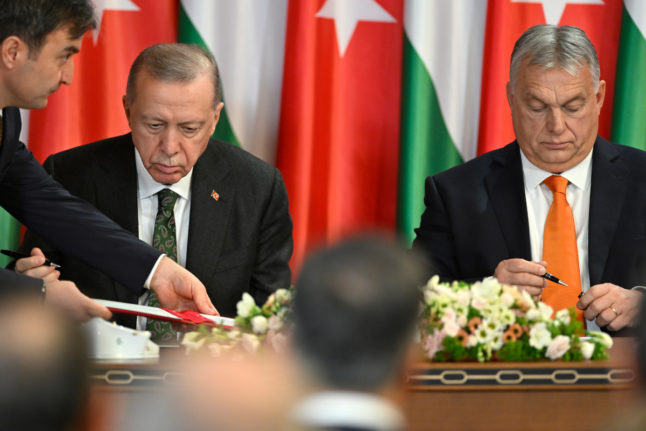Turkey’s government newspaper on Thursday published a protocol on Sweden’s accession to Nato, a final technical step in Ankara’s ratification of the Nordic nation’s bid to join the US-led alliance.
The Official Gazette’s publication of the law on Sweden’s accession to the alliance, which the Turkish parliament approved on Tuesday, ends a nearly two-year saga that tested Ankara’s relations with its Western allies.
Erdogan had earlier signed the document, meaning that Turkey has completed all its required steps.
EXPLAINED:
Turkey’s green light leaves Hungary as the last holdout in an accession process that Sweden and Finland, which had adhered to decades of military non-alignment, began in response to Russia’s invasion of Ukraine nearly two years ago.
Finland became the 31st nation of the alliance last April.
Swedish Prime Minister Ulf Kristersson said on Thursday he was ready to meet his Hungarian counterpart Viktor Orban to help pave the way for Budapest’s quick approval of the bid.
Nato membership applications require unanimous ratifications by all alliance members.



 Please whitelist us to continue reading.
Please whitelist us to continue reading.
Member comments